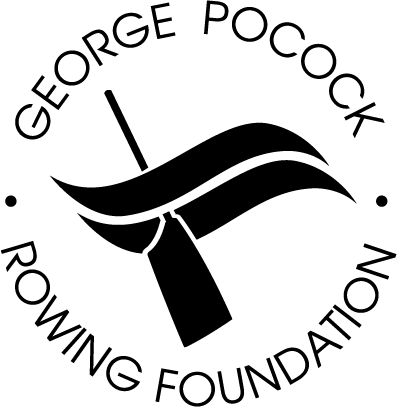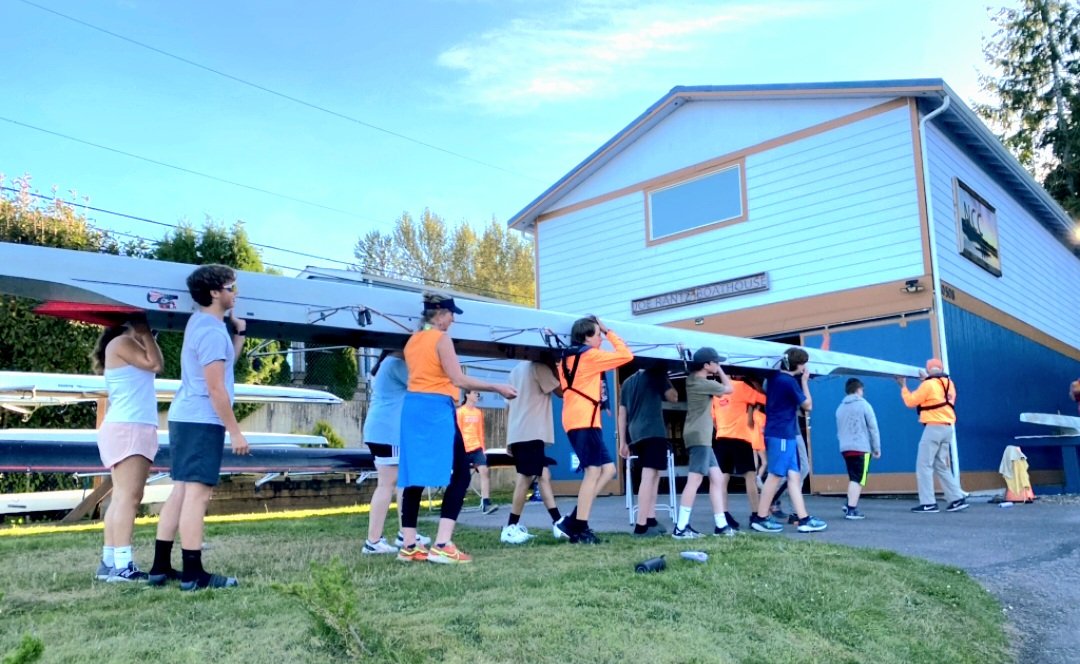How the GPRF Programs Build the Foundation for Ninth Grade Success
In its recent article, Harnessing the Power of Ninth Grade for Student Success, TNTP highlights a transformative insight: ninth grade is a make-or-break year. Students who finish ninth grade “on track”—with strong attendance and passing grades—are three times more likely to graduate from high school. The Center for High School Success (CHSS) emphasizes that academic success in ninth grade is rooted in something deeper: belonging, consistency, structure, and student voice, cultivated well before students enter high school.
That’s where the George Pocock Rowing Foundation’s programs come in and excel. The Foundation provides a connected pipeline of support that helps students thrive before, during, and beyond ninth grade.
Camp Lucy, our free, 10-day summer learn-to-row program for middle school girls and gender-diverse youth, introduces students to challenges and teamwork in a supportive, inclusive setting. For many, it’s their first time in a boat, their first time leading a team, or their first time seeing themselves as athletes. Camp Lucy helps young women build confidence, gain community, and develop resilience—all key social-emotional skills that translate into stronger engagement and belonging when they begin high school.
ERG ED®, the GPRF’s school-based physical education curriculum, reaches an estimated 50,000 students annually in public schools across the country. By bringing rowing machines into classrooms, ERG ED® opens access to a sport that traditionally lives outside the school day—and allows all students to discover their strength, set goals, and grow. Teachers consistently report that ERG ED® boosts self-esteem and re-engages students—especially those who are less likely to see themselves as athletes or leaders.
For students who choose to continue rowing, our Athlete Support & Retention (Scholarship) program helps remove financial and systemic barriers to long-term participation. This program offers scholarships, gear, transportation support, college recruitment counseling, and coach training rooted in trauma-informed and anti-racist practices. In 2024, the GPRF supported 156 Scholarship athletes—43% youth of color and 51% from low-income households—who averaged 468 hours of physical activity and personal development through rowing. These young athletes are consistently more likely to stay involved, stay on track, and report a stronger sense of belonging than their peers.
At the heart of it all is Pocock Youth Rowing, the GPRF’s flagship competitive and recreational team based in Seattle. Pocock Youth Rowing offers year-round programming that meets athletes where they are—from beginners to nationally competitive racers. With a culture grounded in inclusion, mentorship, and personal growth, Pocock Youth provides a high-impact environment where students continue developing the skills introduced in Camp Lucy, ERG ED®, or another Learn to Row program—now with greater structure, goals, and community accountability. For many ninth-grade athletes, it’s a space where the habits of showing up, working hard, and leaning into discomfort become deeply embedded—alongside friendships that help carry them through the complexities of high school.
Together, these four programs form a seamless, student-centered progression. Whether it’s the first spark of confidence at Camp Lucy, the classroom discovery of strength through ERG ED®, the long-term support of Scholarships, or the team culture at Pocock Youth Rowing, the GPRF is helping young people step into ninth grade not only prepared—but empowered. In trust. In community. In themselves.





